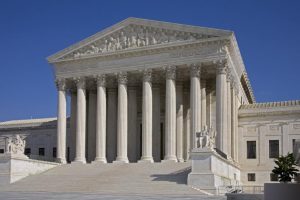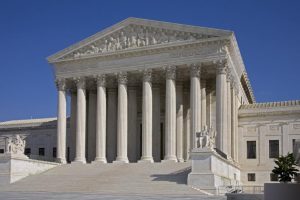
Supreme Court Issues Ruling on Taxation of Trusts
Published on July 10, 2019
 The Supreme Court issued a huge win for trusts last month, ruling that a trust beneficiary’s residence is not sufficient on its own for a state to tax a trust’s undistributed income.
The Supreme Court issued a huge win for trusts last month, ruling that a trust beneficiary’s residence is not sufficient on its own for a state to tax a trust’s undistributed income.
You’ll hopefully remember the case of the North Carolina Department of Revenue v. the Kimberley Rice Kaestner 1992 Family Trust that we brought to your attention this spring. In this case, Joseph Lee Rice, III, created a trust for the benefit of his children in his home state of New York, and he appointed a New York resident as the trustee. That meant it was a New York trust, right? Not so fast.
In 1997, Rice’s daughter, Kimberley Rice Kaestner, moved to North Carolina, and the new trustee subsequently divided the trust into three separate subtrusts, one being the Kimberley Rice Kaestner 1992 Family Trust formed for the benefit of Kaestner and her three children. It was then that North Carolina began to tax the trust. NC precedent previously established that a trust owed income tax to North Carolina whenever the trust’s beneficiaries lived in the state -- even if those beneficiaries received no income from the trust in the relevant tax year, had no right to demand income from the trust in that year, and could not count on ever receiving income from the trust.
Long story short, Kaestner begrudgingly paid the tax but sued the NCDOR in state courts. Representatives of the trust argued that taxing the trust violated the Fourteenth Amendment’s Due Process Clause -- that the connection between North Carolina and the trust was insufficient to satisfy the requirements of due process. When the state courts agreed with Kaestner, NCDOR took it to the U.S. Supreme Court.
In a huge win for trusts, the Supreme Court unanimously agreed with Kaestner, holding that the presence of in-state beneficiaries alone does not empower a state to tax trust income that has not been distributed to beneficiaries where the beneficiaries have no right to demand that income and are uncertain to receive it. In other words, the residency of the beneficiaries alone is too tenuous a link to support taxing trust’s undistributed income. In Kaestner, the trustee kept the trust documents and records in New York, and the trust asset custodians were in Massachusetts. The trust had no physical presence in North Carolina, made no direct investments in the State of NC, and held no real property there. Contacts between the beneficiary and the trustee were minimal: There were only two meetings between Kaestner and the trustee during the time period in question, and both of them took place in New York.
Justice Sotomayor delivered the opinion for the Court, explaining a two-step analysis the Court uses to decide if a state tax abides by the Due Process Clause:
- There must be “some definite link, some minimum connection, between a state and the person, property or transaction it seeks to tax” and
- The “income attributed to the State for tax purposes must be rationally related to ‘values connected with the taxing State.’”
If either of those concepts sounds familiar, it’s because they were used in Quill Corp. v. North Dakota and South Dakota v. Wayfair, Inc. in the ongoing battle over online sales tax.
North Carolina wasn’t alone in its practice to tax trusts based solely on beneficiaries’ residence, so the ruling will have an impact on trusts far beyond North Carolina. For high-tax states like California, it’s possible now that trusts can be simplified. Those states have historically lived with complications like distribution committees that may no longer be necessary. If you’re personally affected by a trust in another state, particularly a high-tax state, consult with an advisor to determine if your plan can be simplified.
Of course, this ruling opens up the possibility for battle over taxing a trust based on where the settlor lived when the trust was created. We’ll cross that bridge when we come to it.






